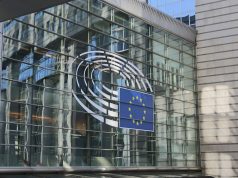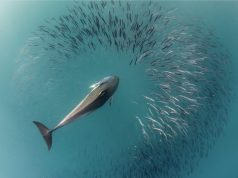INSIGHT by the European Commission
Today, the Commission is responding to the European Citizens’ Initiative (ECI) “Save bees and farmers! Towards a bee-friendly agriculture for a healthy environment”.
The Commission welcomes the initiative and acknowledges the importance of the ECI, in particular as the interlinked crises of climate change, pollution and biodiversity loss constitute growing challenges for Europe’s agriculture and food security. In the EU, one in three bee, butterfly and hoverfly species is in decline, whereas 80% of crop and wild flowering plant species depend on animal pollination. Half of agricultural land in the EU already runs the risk of having a pollination deficit. The threat to the existence of pollinators is a threat to food security and to life on the planet.
The success of the Citizens Initiative is a clear sign of the large public support for action in favour of pollinators, biodiversity and sustainable farming.
The success of the Citizens Initiative is a clear sign of the large public support for action in favour of pollinators, biodiversity and sustainable farming. In this context, the Commission is calling on the European Parliament and the Council to find swift and ambitious agreements on the already submitted legislative proposals, that will help protect and restore European pollinators and translate the citizens’ ambition into law.
| Comprehensive action for sustainability of food systems
The Commission’s European Green Deal actions to ensure the sustainability of food systems include notably: the EU Farm to fork and the Biodiversity strategies, the Nature Restoration Law, Sustainable Use of Pesticides Regulation, revised EU Pollinators’ Initiative ‘the New Deal for Pollinators‘, as well as the new EU common agricultural policy for the period 2023-2027. Taken together, the Commission’s proposals and initiatives are a comprehensive response to the requests made in the ECI.
The proposal for a regulation on the sustainable use of pesticides sets out an ambitious path to reduce the risk and use of chemical pesticides in the EU, including in agriculture. The Commission proposed to reduce the risk and use of chemical pesticides in EU agriculture by 50% by 2030.Within defined parameters to ensure that this overall reduction is met at EU level, Member States will set national reduction targets. New measures will further ensure that all farmers and other professional pesticide users practice Integrated Pest Management, in which alternative environmentally methods of pest prevention and control are considered first, before chemical pesticides may be used as a last resort measure. In the Global Biodiversity Framework, agreed in December 2022 in Montréal, the EU and its Member States likewise committed to reduce by half the overall risk posed by pesticides by 2030.
The proposal for a Nature Restoration Law will also help to reverse the decline of pollinator populations by 2030 and bring nature back to agricultural land, including through specific targets for the restoration of agricultural ecosystems. The nature restoration law proposal combines an overarching restoration objective for the long-term recovery of nature in the EU’s land and sea areas with binding restoration targets for specific habitats and species. These measures should cover at least 20% of the EU’s land and sea areas by 2030, and ultimately all ecosystems in need of restoration by 2050.
Together, these proposals have the potential to be a game changer for pollinator conservation at EU level.
| Next steps
Rather than proposing new legislative acts, the priority is to ensure that the proposals currently being negotiated by the co-legislators are adopted and then implemented in a timely manner, each of which hold high relevance in the context of this ECI, together with an effective implementation of the CAP. Over one million statements in support of this citizens’ initiative are a clear signal and encouragement that the high level of ambition of the Commission proposals should be maintained.
| Background
The European Citizens’ Initiative “Save bees and farmers!” reflects public concerns about the environmental and socio-economic sustainability of European agriculture and calls on the Commission to:
〉phase out synthetic pesticides by 2035;
〉restore biodiversity in agriculture; and
〉support farmers in the transition to sustainable farming.
The European Citizens’ Initiative (ECI) was launched in April 2012 as a means for citizens to set the agenda in a wide range of policy areas. An ECI allows 1 million citizens from at least seven EU Member States to invite the European Commission to propose legal action in areas where the Commission has the power to do so. The ECI is one of the key innovative tools to promote participatory democracy on EU level.
To date, the Commission has received 125 requests to launch an ECI. Nine so far were submitted to the Commission after having reached the threshold of one million signatures.
The “Save bees and farmers! Towards a bee-friendly agriculture for a healthy environment” initiative is the seventh ECI to which the Commission responds. This ECI aligns with calls made at the Conference on the Future of Europe through which citizens insisted on the need for a safe, sustainable, just, climate responsible, and affordable production of food, safeguarding biodiversity and ecosystems, while ensuring food security.
| All opinions expressed are those of the author and/or quoted sources. investESG.eu is an independent and neutral platform dedicated to generating debate around ESG investing topics.








